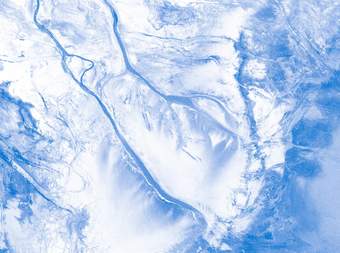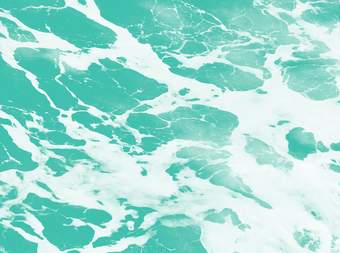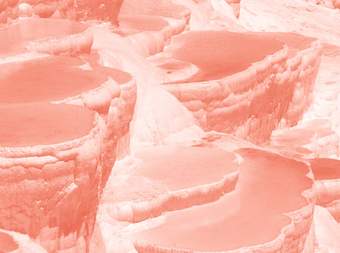The third and final day of Waterways: Arteries, Rhythms and Kinship is comprised of three separate off-site workshops, delivered by the artists Taey Iohe, Jumana Emil Abboud and Julie Gough.
This event is organised by Hyundai Tate Research Centre: Transnational.
Workshop One - Taey Iohe: Messengers
10.00–12.00, Walthamstow Wetlands
Meeting point: Engine House, 2 Forest Rd, Wetlands N17 9NH, at the ramp, at 09:50.
Taey Iohe invites participants on a slow, meditative walk – a shared circle of breathing, listening, and processing the grief held in our bodies. Set in Walthamstow Wetlands, embraced by the River Lea and home to ten reservoirs that supply drinking water to Londoners, this area is rich in riparian habitats and migratory birds. The space traces the financialised colonial histories of corn, gunpowder, paper, copper, and oil, serving as a site of marshes, farmland, a pump house and a water holder. Moving through this journey, ‘Messengers’ asks:
If water is an extension of ourselves, how can we understand its socio-historical lineage as both a form of interspecies solidarity and a reflection of slow resistance against slow violence? How do we imagine our bodies of water being sustained by other bodies of water? Can we, as messengers, channel these leaks as paths to honour our fragile lives and reclaim our fractured bodies as evidence of polluted and privatised water?
Taey invites two critical friends; a community herbalist, Rasheeqa Ahmad and land-based artist, Rachel Pimm to join the walk. Participants will experience the wetlands’ sensory richness – smelling reservoirs, sitting among water reeds, and breathing alongside swans and turtles. We will ‘walk-with’ and ‘walk-near’ these water communities, reflecting on how bodies of water slowly seep from our urban landscape, silently and collectively, in an interspecies chorus.
Workshop Two - Jumana Emil Abboud: Your reflection on the gentle sea
13.00–15.00, Walthamstow Wetlands
Meeting point: Engine House, 2 Forest Rd, Wetlands N17 9NH, at the ramp, at 12:50.
A storytelling workshop led by Jumana Emil Abboud weaving together folk tales and water lore with living water memories. Jumana Emil Abboud will share a story that invites participants to reflect on our connection to water sources across space and time. The workshop draws inspiration from a Palestinian folk tale about a gazelle and her quest across North, South, West and East. This is a story about transformation, and as a participant, it is also your story.
Jumana Emil Abboud has developed a long-term collaborative practice around water bodies as sites of more-than-human community and sanctuary. Connecting multiple forms of storytelling the workshop seeks to spark imaginations and invites participants to relate to prompts that bridge the space of water and story.
Notes:
Participants are encouraged to share their stories and memories and are invited to feel open to participation. Minimum age 12 years.
Workshop Three - Julie Gough: The Mire
13.30–16.00, Bankside Pier, Tate Modern to Greenwich and back
Meeting point outside River Entrance of Tate Modern at 13:30 for prompt 13:40 departure. We will be taking the Thames Clipper service at 13:57.
Julie Gough invites participants to join her on a boat journey along the River Thames, speaking to sites of significance, reflecting on their colonial impacts and legacies for, in particular, Tasmanian Aboriginal people.
On this tour to Greenwich and back Julie will discuss her recent artwork The Mire based on colonial expansion, and uncovering hidden histories through the lens of mudlarking. In the1800s Aboriginal cultural belongings and several of Gough’s British ancestors were transported along this river, to and from Van Diemen’s Land (Lutruwita / Tasmania)
Gough’s archival research and writing critically approaches and discloses the lasting effect of Empire upon its subjects, and the resulting inheritances and responsibilities, including the need to find the missing, and repatriate Ancestors and cultural objects held far from home. Julie will enact a river-return action to amplify the need to stay focused on unfinished business.
Gough’s art-research uncovers and re-presents conflicting and subsumed histories, many referring to her family's experiences as Tasmanian Aboriginal people. Her Briggs-Johnson-Gower family have lived in the Latrobe region of Lutruwita (Tasmania) since the 1840s, with Tebrikunna in north east Lutruwita their Traditional, Trawlwoolway, country.
Workshops one and two will be BSL interpreted.
Walthamstow Wetlands
It is safe to walk in the wetlands, though wheelchair accessibility is limited. The route includes cobblestones and unpaved areas. There is a toilet and café at the Engine House, which we will visit briefly. Unless there is a storm or heavy rain, we plan to proceed as the weather is part of our lab conditions. However, we will reschedule if it becomes unsafe due to stormy conditions or heavy rain.
- Please bring a bottle of water and a packed lunch.
- Please make sure you have appropriate footwear as the ground can be uneven and dress appropriately for the weather forecast for the day. (e.g. suncream, rainproof coat etc.)
- Stick to artist’s guided paths and keep a safe distance from the edge of the water.
- Please be aware this is a public site that local residents and visitors use regularly.
For further information regarding the wetlands, please look at the London Wildlife Trust website.
For more information before your visit:
- Email hello@tate.org.uk
- Call +44 (0)20 7887 8888 (daily 10.00–17.00)
Participants
Julie Gough is an artist, writer and curator, First People’s Art and Culture, at the Tasmanian Museum and Art Gallery (TMAG), Australia. Gough’s multi-media art works reveal and re-present conflicting and subsumed histories, legacies and impacts of colonization, sometimes referring to her family’s experiences as Tasmanian Aboriginal people. Gough has exhibited in more than 200 exhibitions in Australia since 1994, including Shadow Spirit (2023), Biennale of Sydney (2022, 2006), Tarnanthi (2021, 2017), Adelaide Biennial (2018, 1998), Eucalyptusdom, Tense Past, Defying Empire, The National , With Secrecy and Despatch, Undisclosed; Clemenger Award, Liverpool Biennial, UK (2001), Perspecta (1995).
Jumana Emil Abboud (b. 1971) is a Palestinian-Canadian artist is currently based between Jerusalem and London where she is completing her PhD at the Slade School of Fine Art. Her practice draws on folklore, waterlore, mythmaking and storytelling which harness the community of making and explore the sanctuary of interconnectedness. Working in spoken-word performance, drawing, video, walking, journaling, and collaborative Water Divining workshops, Abboud’s practice addresses ways in which stories can survive past dispossession. Her work has been presented at Aomori Contemporary Art Centre, Cample Line, Tavros Athens, Documenta, Jameel Arts Centre, Seoul Museum of Art – SeMA, Casco Art Institute: Working for the Commons, Tate Live; at Biennales in Lyon, Sharjah, Venice, Istanbul, Sydney, and Riyadh, and with solo exhibitions at Cample Line, Tavros Athens, BALTIC Centre for Contemporary Art, the Khaled Shoman Foundation Darat al Funun, and Bildmuseum, Umea, among others. Abboud is currently a Jameel Fellow at the V&A London, in partnership with Cirva, Marseille.
Taey Iohe is a transdisciplinary artist, writer and listener, born near the Han River, and living near the River Lea and Ching. Their work is grounded in collective care, humility and ethical ecological relationships. They employ diverse media, including soundscapes, language, moving images, social practice, and collective actions through an eco-crip lens. Taey is interested in what leaks out of the meta-narratives of our entangled socio-botanical world and how leaking can both identify pain and serve as a remedy. Currently, they focus on learning what seeps across boundaries at various waterways and ecotone sites. Their teaching practice aligns closely with their artistic work, engaging with critical, intersectional, and transnational approaches to embodied inquiries. Taey is a Research Associate at the Centre for Contemporary Art in Derry~Londonderry and teaches Fine Art at Chelsea College of Art.
Conveners
Kimberley Moulton is a Yorta Yorta woman who lives and works on Wurundjeri/ Boonwurrung lands, Melbourne, and London, England. She is Adjunct Curator, First Nations and Indigenous Art at Tate Modern and Senior Curator at RISING, Melbourne’s international arts festival. Moulton was previously Senior Curator, First Peoples Collection at Museums Victoria (2016-2023). She works with knowledge, histories and futures at the intersection of historical collections and contemporary art. Her practice works to rethink global art histories and extend what exhibitions and research in and out of institutions can be for First Peoples communities and artists more broadly. She is currently a PhD candidate in curatorial practice with the Wominjeka Djeembana Indigeneous Research Lab Monash University. Her board roles include Deputy Chair of the Board Shepparton Art Museum and member of the Board for the Adam Briggs Foundation. In 2025 Kimberley is curating the Tarrawarra Biennale.
Marleen Boschen, is a curator, lecturer and artist working at the intersections of art and ecology. She is Adjunct Curator of Art and Ecology at the Hyundai Tate Research Centre: Transnational. She is also a post-doctoral fellow at the Royal Botanic Gardens, Kew with the research project Future Ecologies of Art, which examines botanical organisations as sites of artistic engagement. Since January 2023 she has co-curated Testing Grounds / Seeding Worlds, an artistic programme on cultivation, migration and agroecological learning for the garden of Villa Romana, Florence, with Elena Agudio. Her current research explores border ecologies, sonic practices, and ecological imaginaries.
Portia Malatjie is Adjunct Curator of Africa and African Diaspora at the Hyundai Tate Research Centre: Transnational, Tate Modern, and a Senior Lecturer in Art History and Discourse of Art at the Michaelis School of Art, University of Cape Town. She is co-curator of Ecologies of Elsewhere and When Rain Clouds Gather: Black South African Women Artists, 1940 – 2000, as well as curator of the South African Pavilion at the 60th Venice Biennale with an exhibition titled Quiet Ground. Her research explores African conceptions of Blackness through sound, spirituality, and Black Feminism. Malatjie was a 2023 Yale University visiting fellow in the Department of the History of Art.




